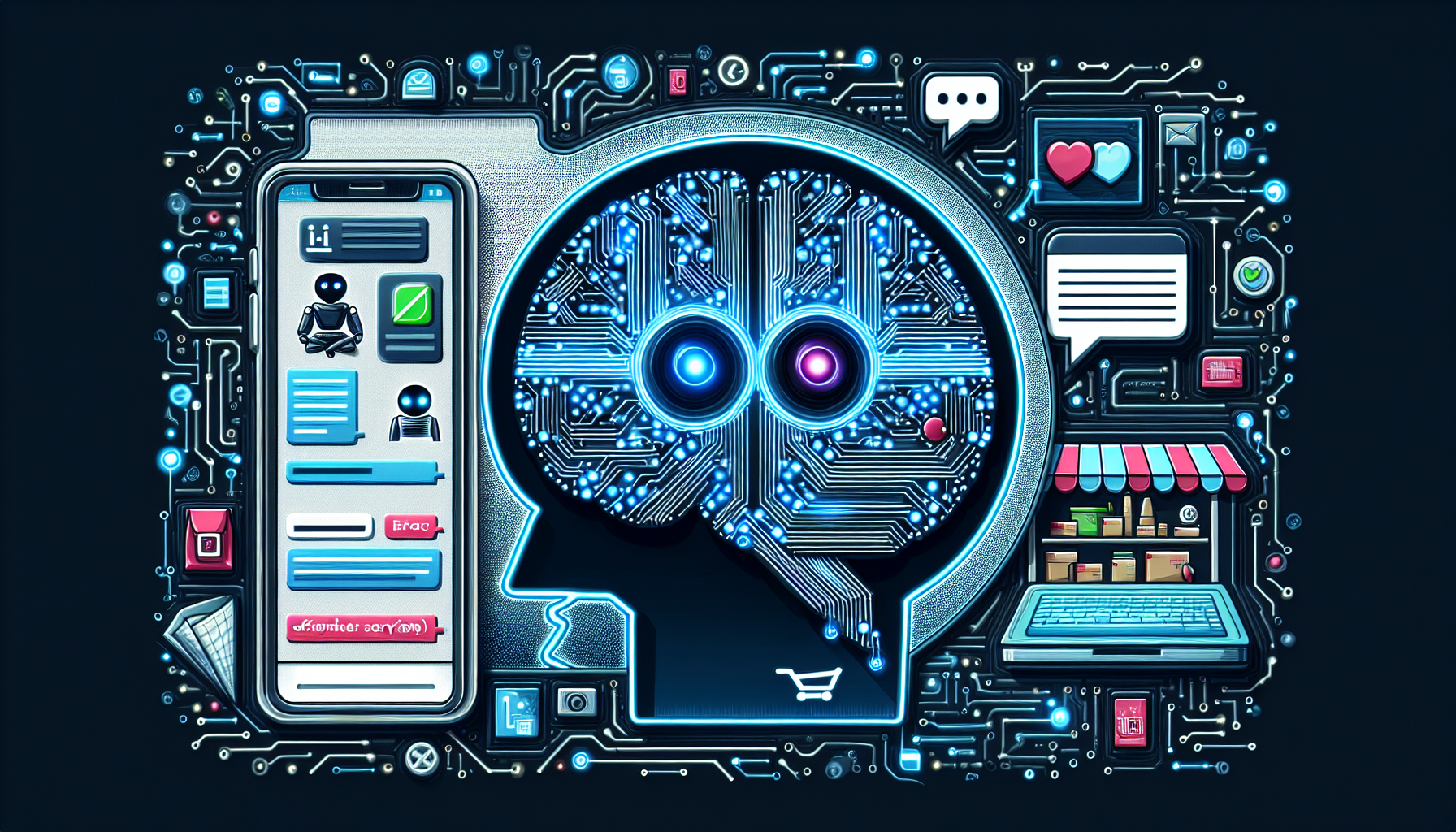AI-Powered Chatbots: Enhancing Customer Service in eCommerce
The Rise of AI-Powered Chatbots
In today’s digital landscape, customer expectations are continually evolving, especially in the realm of eCommerce. With the rise of online shopping, businesses are increasingly turning to innovative solutions to meet these demands. Among these solutions, AI-powered chatbots are at the forefront, revolutionizing how companies interact with their customers. This technology not only streamlines communication but also enhances customer service by providing timely, accurate, and personalized support.
What is an AI-Powered Chatbot?
AI-powered chatbots are software applications that use artificial intelligence to simulate conversation with users via text or voice. Unlike traditional chatbots, which operate based on fixed rule-based programs, AI chatbots leverage machine learning (ML) and natural language processing (NLP) to understand context, discern intent, and provide meaningful responses. This ability allows them to handle a wider range of inquiries and improve their responses over time through learning from interactions.
Benefits of AI-Powered Chatbots in eCommerce
- 24/7 Availability
One of the most significant advantages of AI chatbots is their ability to operate 24/7. Customers expect instant responses, and chatbots ensure that they can resolve queries at any time, day or night. This constant availability enhances customer satisfaction and reduces frustration, particularly for time-sensitive inquiries.
- Enhanced Customer Experience
AI chatbots can personalize interactions by analyzing user behavior and historical data. They can recommend products based on previous purchases, retrieve relevant user information, and tailor responses to individual needs. This level of personalization fosters a deeper connection with customers, thereby enhancing their overall shopping experience.
- Cost-Efficiency
Implementing AI chatbots can significantly reduce operational costs for eCommerce businesses. By automating responses to common inquiries, businesses can minimize the need for extensive customer service teams. This not only saves money on labor but also allows human agents to focus on more complex issues that require a personal touch.
- Instant Response Time
AI chatbots provide immediate responses to customer inquiries, reducing wait times that typically frustrate customers. Research indicates that 71% of consumers expect to receive immediate assistance when they reach out online. By promptly addressing concerns or inquiries, businesses can boost customer retention and loyalty.
- Data Collection and Insights
Every interaction with an AI chatbot generates a wealth of data. Businesses can analyze these interactions to gain insights into customer behavior, preferences, and pain points. This data can be critical for informing marketing strategies, optimizing product offerings, and improving service delivery.
Key Functions of AI Chatbots
- Order Tracking and Management
AI chatbots can significantly simplify order tracking and management. Customers can easily inquire about the status of their orders, shipment details, and estimated delivery times through interactive chat interfaces. This automation reduces the burden on human customer service representatives while keeping customers informed.
- Product Recommendations
By leveraging machine learning algorithms, chatbots can analyze customer behavior and suggest products tailored to individual preferences. This proactive approach can lead to increased sales as customers find precisely what they’re looking for, often discovering new products along the way.
- Handling FAQs
AI chatbots excel at answering frequently asked questions, whether about shipping policies, return processes, or payment methods. Automating responses to these common queries allows businesses to streamline customer service operations while providing customers with instant answers.
- Lead Generation
Chatbots can proactively engage website visitors, qualifying leads through conversational interactions. By asking targeted questions about preferences or needs, chatbots can gather valuable customer information and facilitate connections with sales teams when appropriate.
- Feedback Collection
AI chatbots can solicit and collect customer feedback efficiently. After a transaction, they can request ratings or reviews, providing businesses with immediate insights into customer satisfaction and areas for improvement.
Integrating AI Chatbots into Your eCommerce Strategy
- Choosing the Right Platform
When integrating AI chatbots into an eCommerce website, selecting the right platform is crucial. Consider factors such as ease of use, customization options, and compatibility with existing systems. Platforms like LiveChat, Chatfuel, and Zendesk offer robust solutions tailored for eCommerce businesses.
- Setting Clear Objectives
Define the primary goals for using a chatbot. Whether it’s increasing sales, improving customer support, or enhancing user engagement, having clear objectives will inform the chatbot’s design and functionality.
- Designing User-Friendly Interfaces
A well-thought-out user interface is essential for effective chatbot implementation. Design conversations that are intuitive and mimic natural human interactions. Ensure users can easily navigate the conversation flow and reach desired outcomes without frustration.
- Continuous Learning and Improvement
AI chatbots must evolve to remain relevant and effective. Regularly review interaction data, customer feedback, and performance metrics. Use these insights to refine the chatbot’s capabilities, expanding its knowledge base and improving user experience.
- Integrating with Customer Relationship Management (CRM) Systems
Integrating chatbots with CRM systems can enhance their effectiveness, allowing them to retrieve customer information seamlessly and provide more personalized interactions. This integration enables a holistic view of customer interactions, further improving service quality.
Challenges and Considerations
While implementing AI-powered chatbots can yield significant benefits, businesses must also contend with challenges. One major consideration is the balance between automation and human interaction. Customers still value personal touch, especially for complex inquiries. Therefore, it’s essential to have a clear handoff process where human agents can step in when needed.
Another challenge is ensuring that AI chatbots are capable of understanding diverse languages, dialects, and colloquialisms. Continuous training and updates are required to ensure that chatbots remain effective in understanding the nuances of human language.
Conclusion
AI-powered chatbots represent a transformative opportunity for eCommerce businesses seeking to elevate their customer service. With capabilities that enhance user experience, streamline operations, and provide invaluable insights, these advancements are essential for companies aiming to thrive in today’s competitive marketplace. By integrating chatbots thoughtfully and continuously refining their performance, businesses can cultivate stronger customer relationships and drive sustainable growth.


